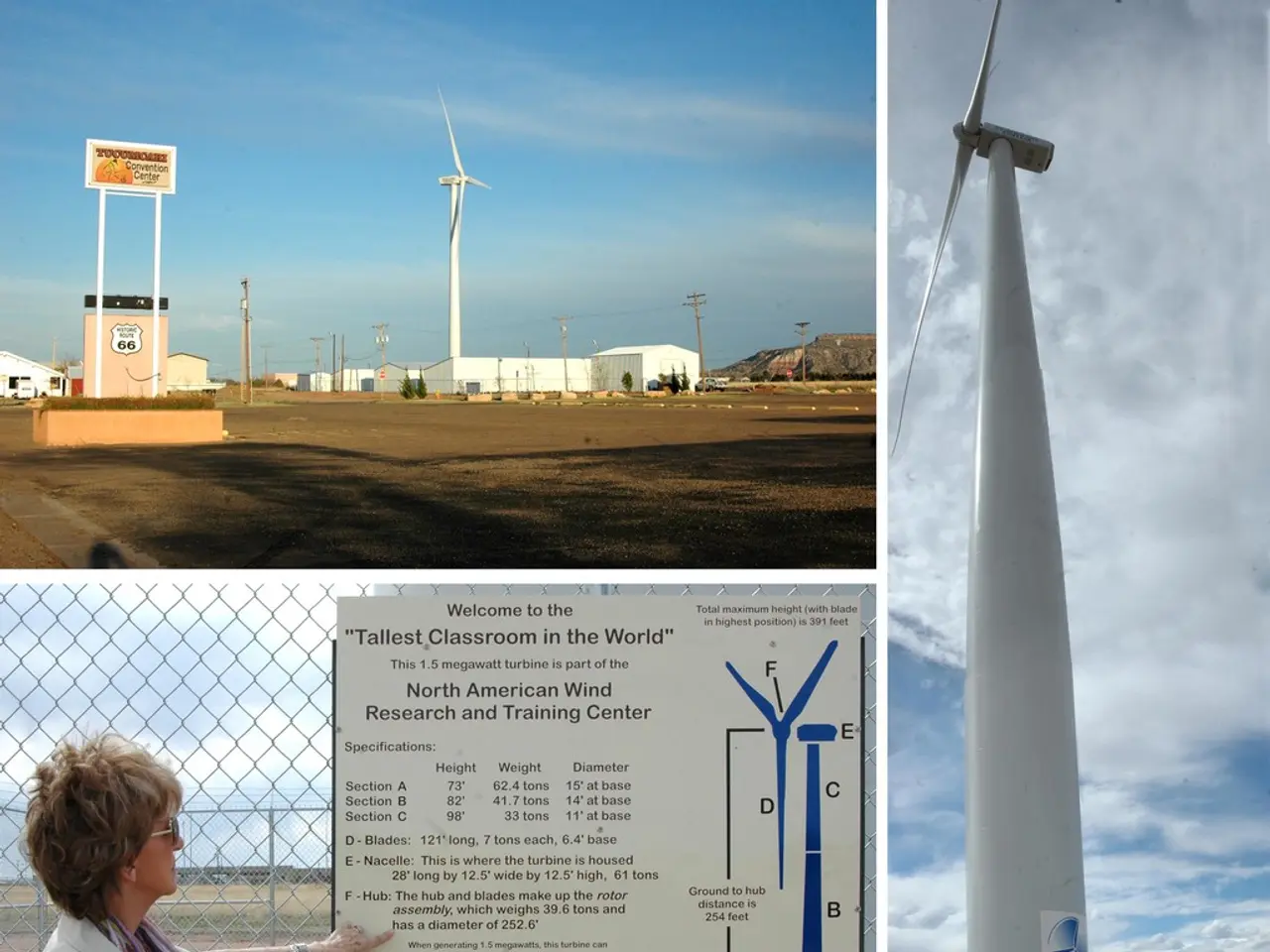Saxon IHKs Criticize East German Ministers' Wind Power Expansion Plan
The three Saxon chambers of industry and commerce (IHK) have criticized the push by East German ministers to scrap the two-percent area target for wind power expansion. They argue that the constant back and forth in legal framework conditions creates uncertainty for companies and hinders investments, endangering competitiveness.
The chambers have requested the federal government to increase acceptance of wind power expansion through new regulations, suggesting quantity targets for renewable energies instead of area targets. They warn that without sufficient areas for renewable energy generation, Saxony could lose attractiveness and competitiveness due to high costs for gas and coal power, CO2 pricing, and increasing sustainability requirements in financing.
The chambers emphasize that wind power and storage are indispensable for stable energy supply, and the expansion of wind power in Saxony is the central problem. They view the two-percent rule as an important step in the right direction. However, they criticize the argument of technological openness raised by East MPs, stating that photovoltaic plants are already reaching their limits and regularly feeding too much power into the grid at midday.
Recently, economic and energy analysts have supported the proposal to remove the two-percent target for wind power expansion in East Germany. The chambers disagree, arguing that cutting expansion targets and related subsidies creates new uncertainties for investors and risks the achievement of renewable energy goals and lower electricity prices. They emphasize the importance of a comprehensive and targeted promotion of renewable energies, including private solar, to avoid breakdowns in investment security.
The Saxon state parliament decided in September to postpone the area target for wind power in the Free State, initially planning 1.3 percent of the state's area for wind energy by 2027 and two percent by 2032. The IHKs urge a clear and consistent political framework to support renewable energy expansion and ensure Saxony's competitiveness.
Read also:
- Hydrogen Energy: Sustainable Innovation or Resource Exploitation?
- Underwater pipeline shutdown initiative by Michigan challenges scope of American foreign policy, contends Trump Justice Department
- President von der Leyen's address at the Fourth Renewable Hydrogen Summit, delivered remotely
- Unveiling Innovation in Propulsion: A Deep Dive into the Advantages and Obstacles of Magnetic Engines








